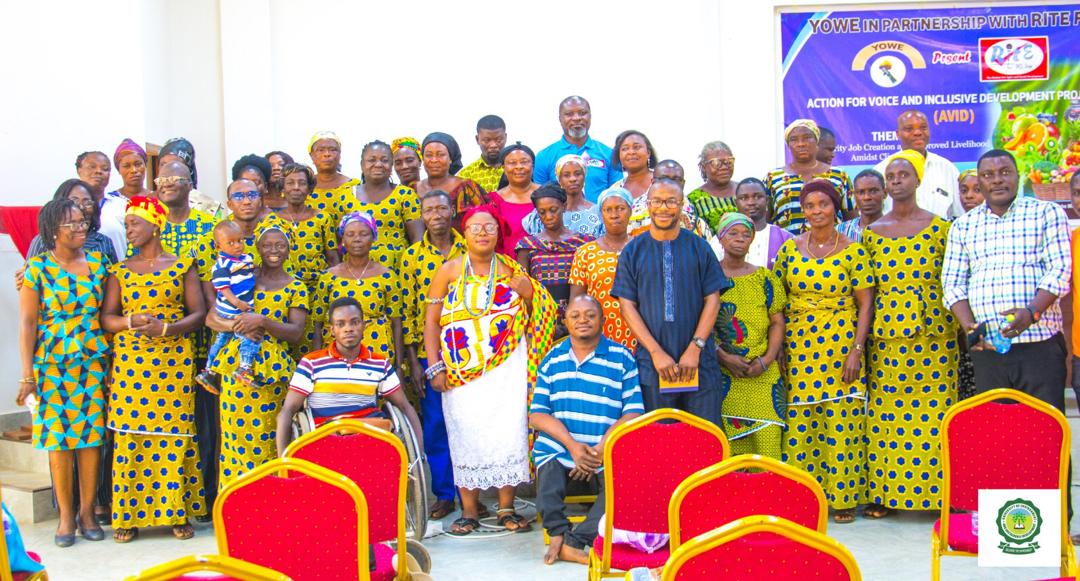The Pro-Vice-Chancellor of the University of Environment and Sustainable Development (UESD), Prof. Edward Wiafe Debrah served as the resource person at the Rite FM-YOWE 2024 Agric Fair held on 29/02/24 under the auspices of Action for Voice and Inclusive Development Project (AVID) and sponsored by Star Ghana Foundation. He was supported by a lecturer in Agriculture Sustainability at the School of Sustainable Development, Dr. Theodora Akweley Asiamah.
The Fair which took the form of a forum was aimed at empowering women cooperatives and groups in social entrepreneurship for sustainable living.
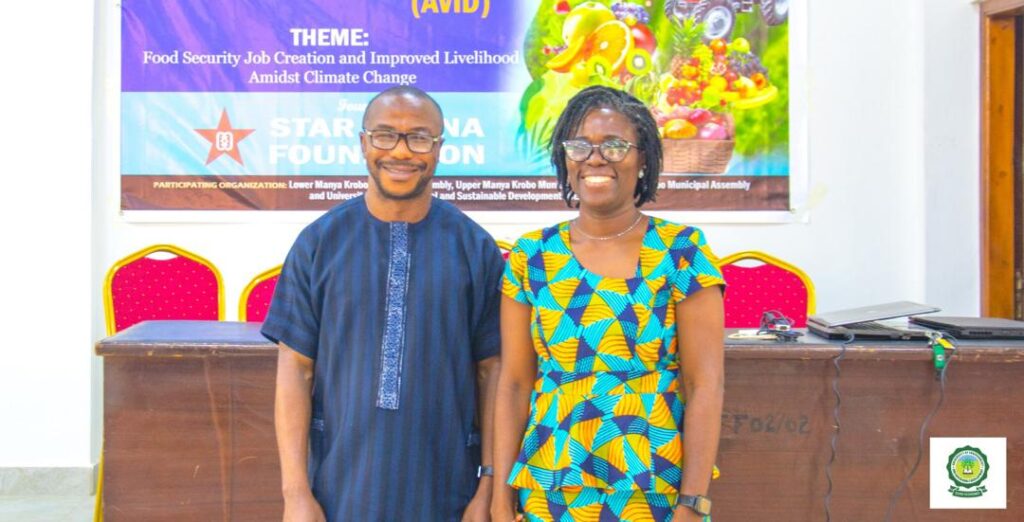
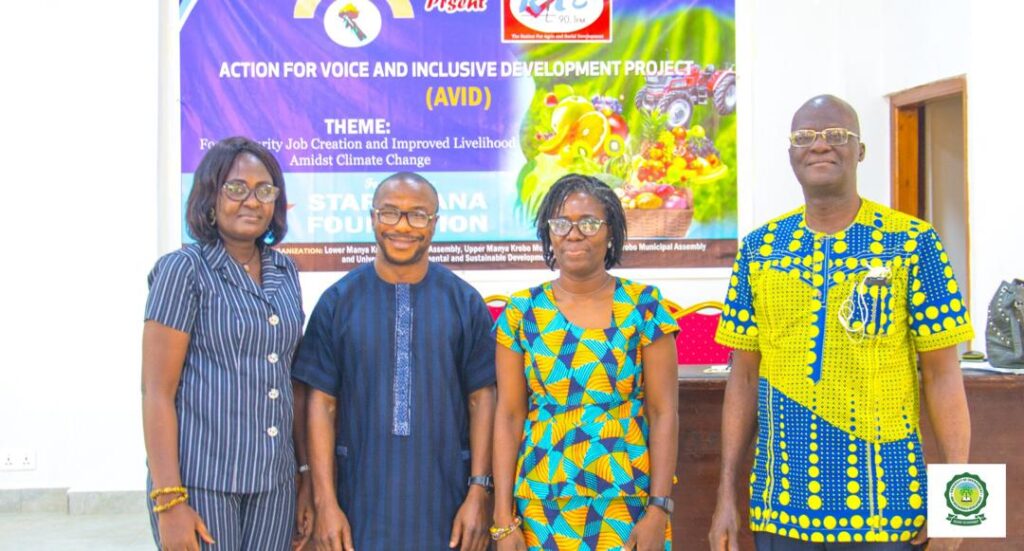
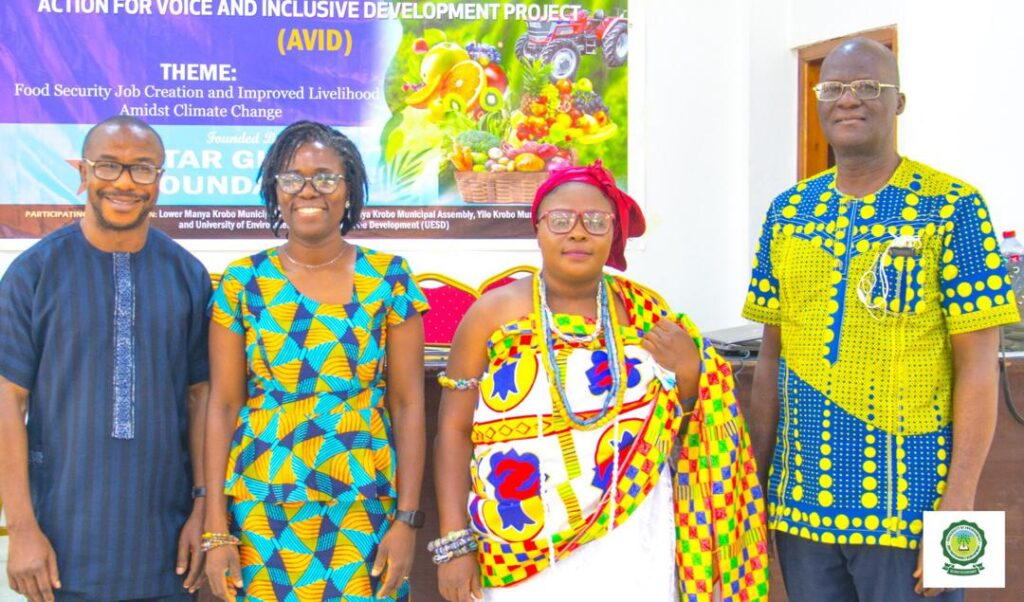
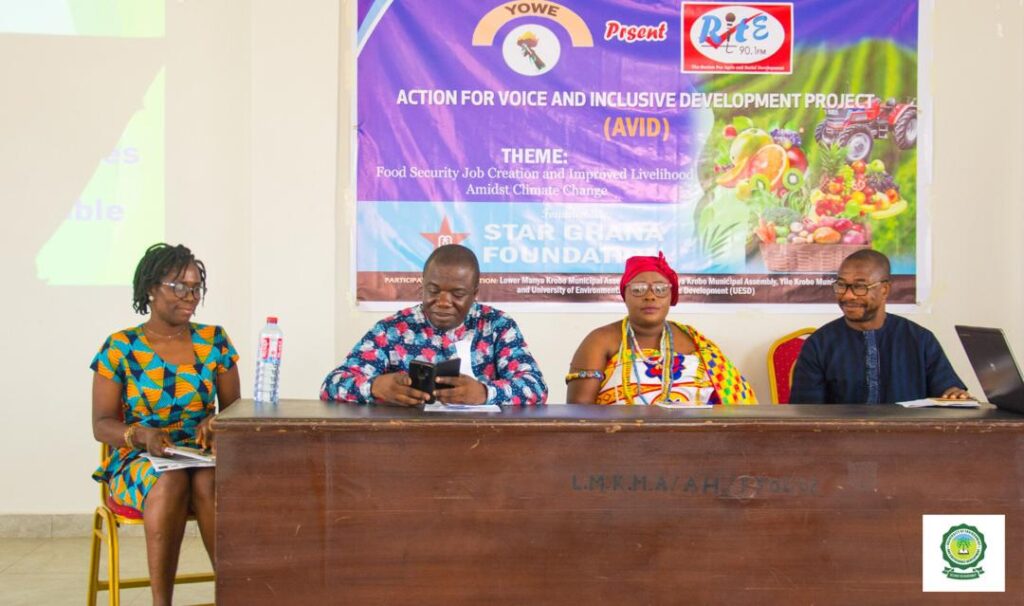
It was held at the Lower Manya Krobo District Assembly Hall and attended by representatives of farmer-based groups including members of the Market Queen Mothers Association, Asesewa and Akutunye Farmers Associations, and Persons Living with Disability.
The Queen Mother of Akwernor Atoshonya, Manye Narkie Gommeh-I chaired the programme. The acting Chief Executive Officer of Rite-FM, Mr. Daniel Alimo was the moderator of the Fair.
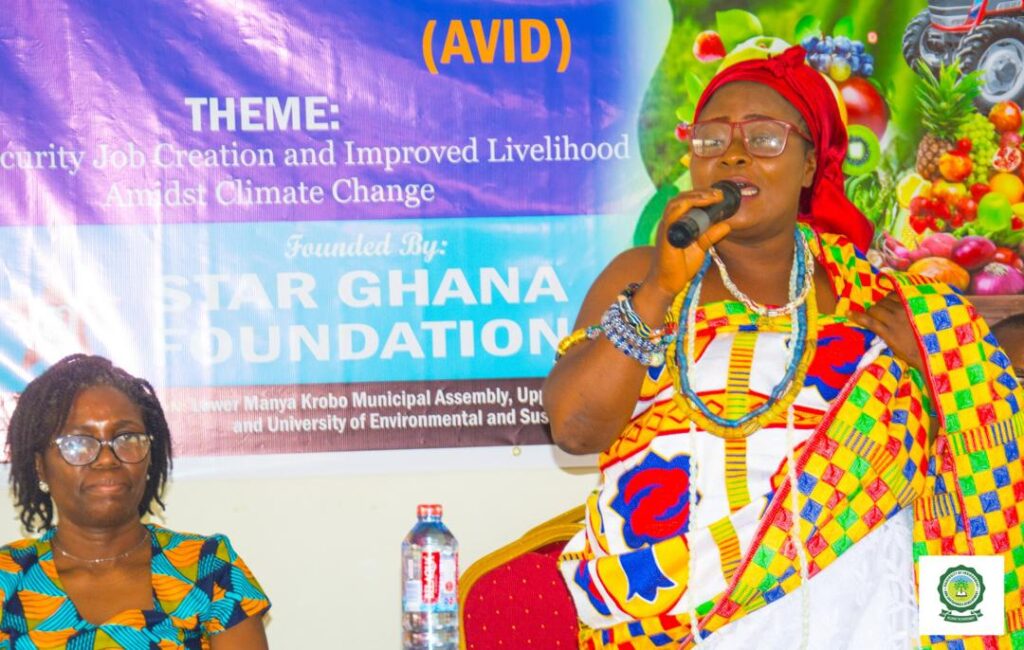
In his presentation on environmental pollution and its impacts, Prof. Wiafe first defined environmental pollution as the introduction of unwanted materials into the environment. He shed light on the numerous types of pollution, highlighting their negative impacts on public health and food security, including noise, air, water, and soil contamination. Prof. Wiafe elaborated on how agricultural practices such as pesticide use and industrial activities contribute to soil and crop contamination, endangering food security.
Professor Wiafe also underlined how water pollution affects seafood and marine ecosystems, contaminating the food chain and causing a drop in aquatic species. He also emphasised the connection between environmental pollution and a wide range of health problems, such as neurological and cardiovascular ailments, respiratory infections, and waterborne illnesses.
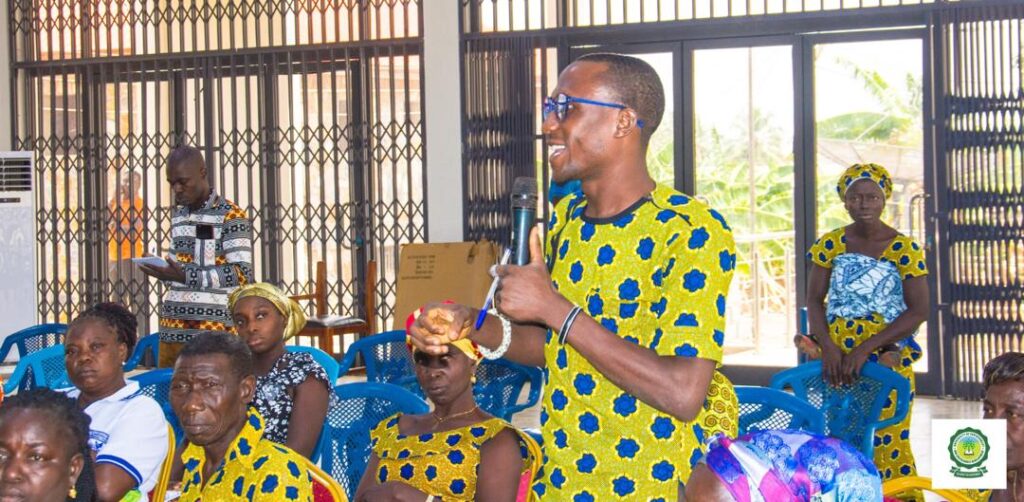
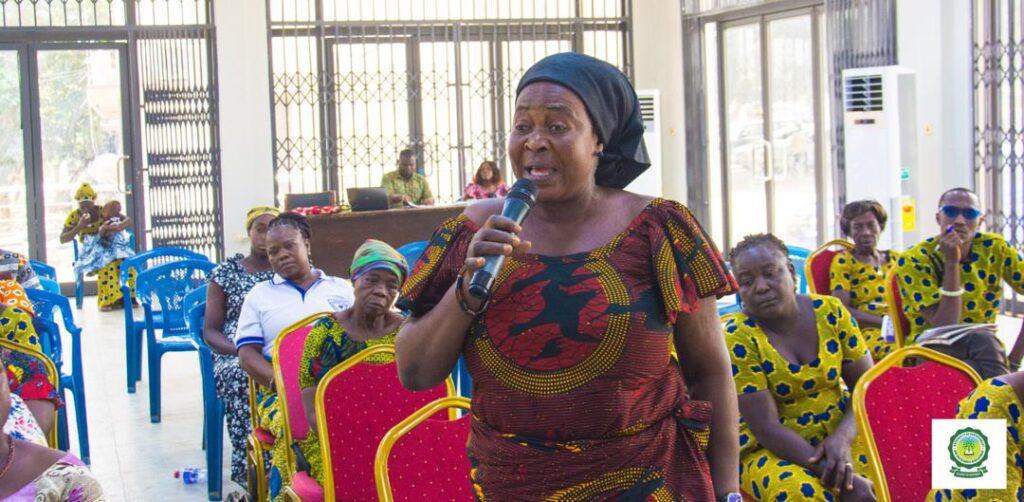
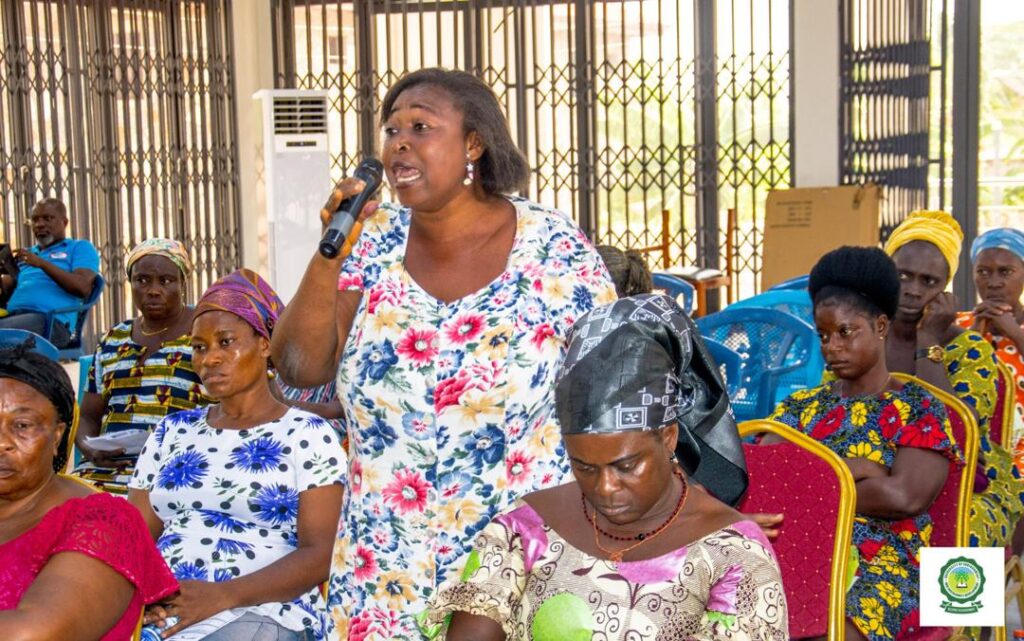
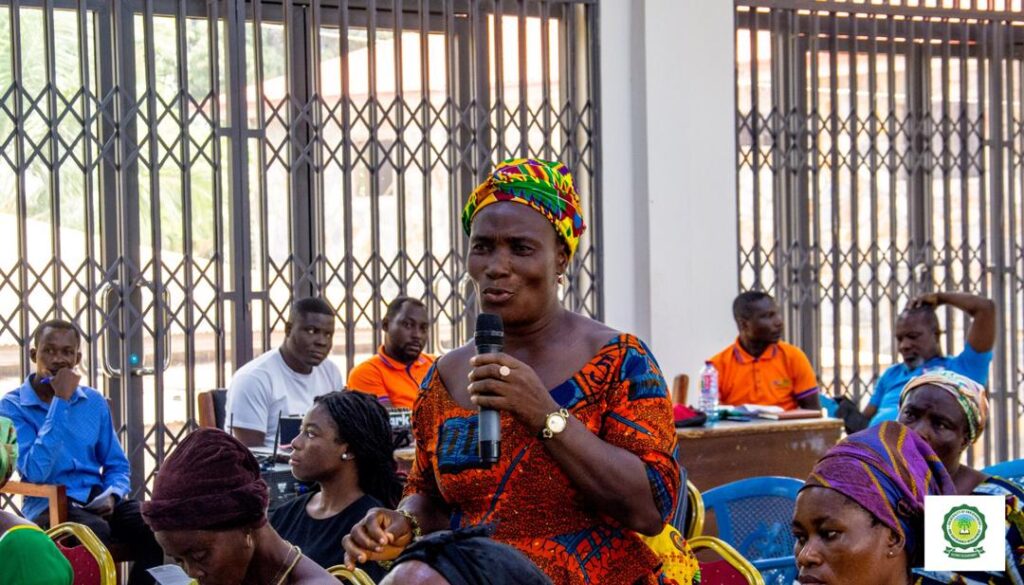
The environmentalist advanced the argument that man-made disasters like chemical leaks, oil spills, and industrial mishaps are made worse by environmental contamination. In addition, he stressed how human actions like careless waste management, insufficient drainage systems, and haphazard settlements function as triggers for natural disasters like floods.
Dr. Theodora Asiamah complemented Prof. Wiafe’s presentation by outlining strategies for promoting food security, including food preservation techniques and hygienic food handling practices. She underlined how crucial it is to keep the food supply chain clean and to reduce food waste.
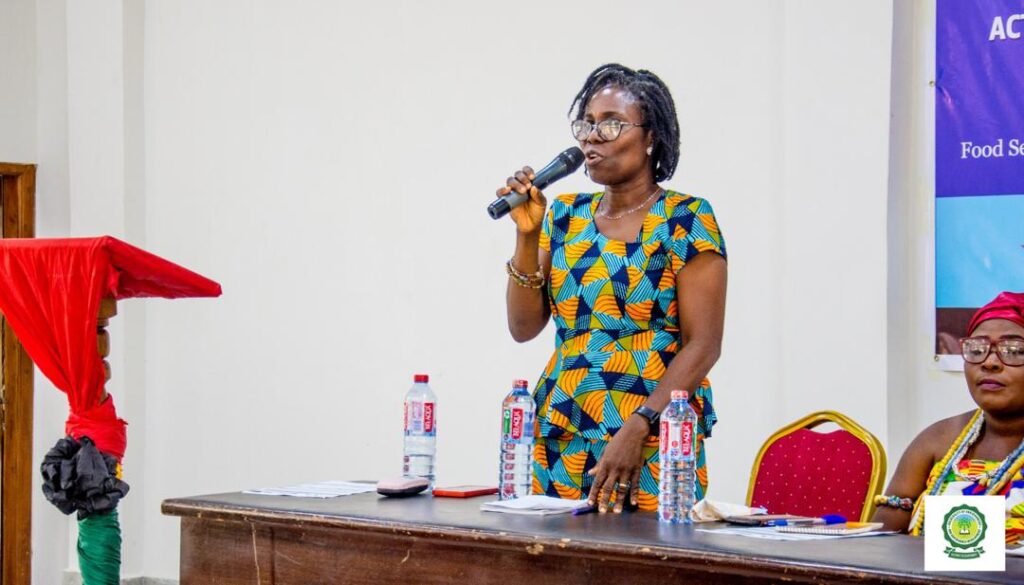
In an open forum, the farmers raised concerns about the affordability of fertilisers and transportation costs, calling for interventions to alleviate these challenges. Other concerns were about air pollution from road construction activities and unhygienic practices among fish vendors in markets. There were also calls for the reintroduction of sanitation officers into the communities.
Prof. Wiafe responded by highlighting the educational initiatives undertaken by UESD to raise awareness about food security and environmental pollution, including outreach programmes targeting Secondary Schools and community engagement activities.
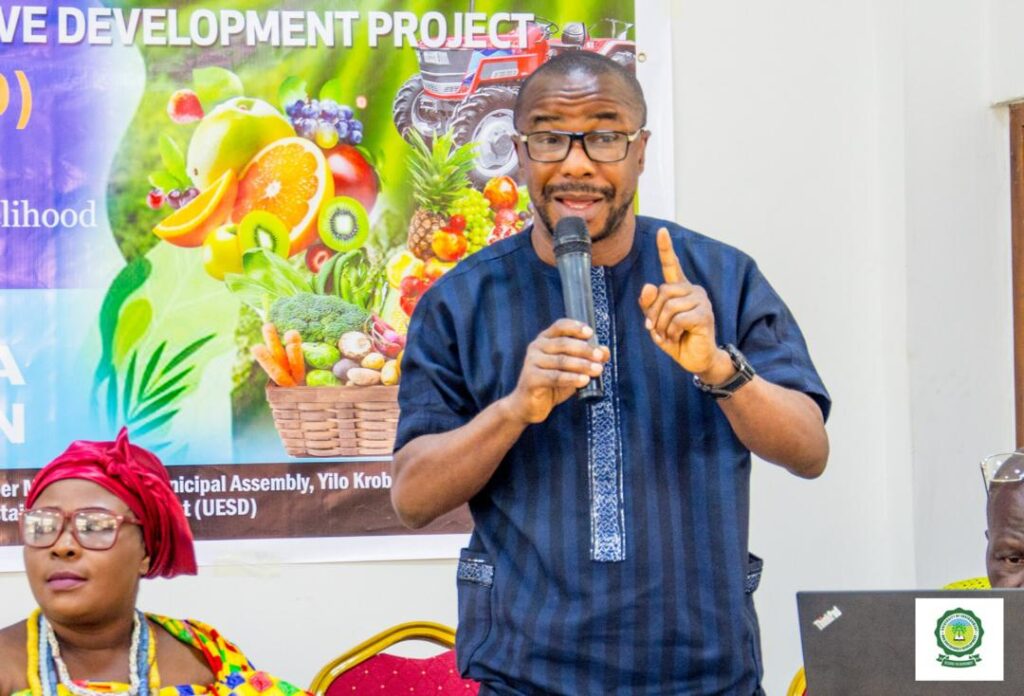
To mitigate environmental contamination caused by road-building operations and unsanitary behaviours among market vendors, the resource person advocated community involvement and individual accountability. He advised the participants to adopt sustainable development strategies to preserve food supplies, preserve public health, and create resilient communities for a sustainable future. These methods include legislative interventions, technical advancements, behavioural modifications, and community participation.
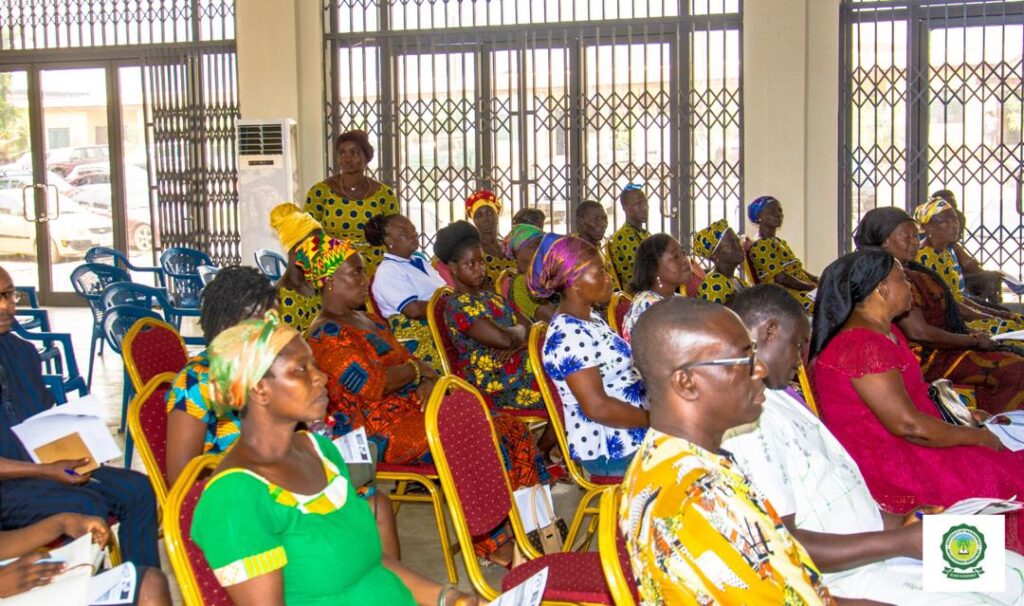
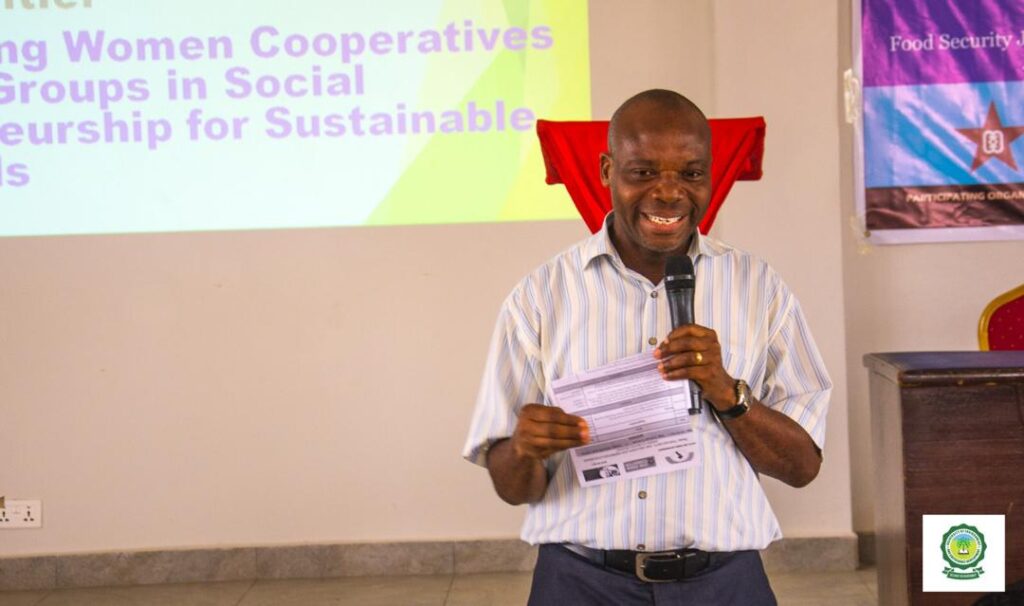
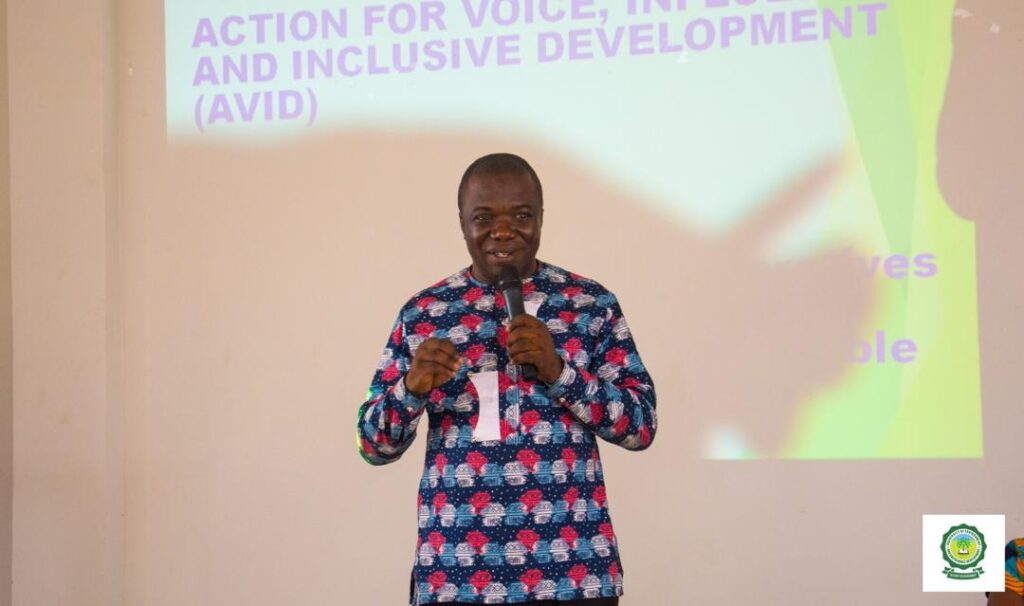
In her remarks, the chairperson, Manye Narkie Gommeh-I, underscored the goals of the Action for Voice and Inclusive Development Project (AVID). The project’s year-long objectives aim to formalise groups and associations while empowering rural communities to access resources for improved livelihoods.

